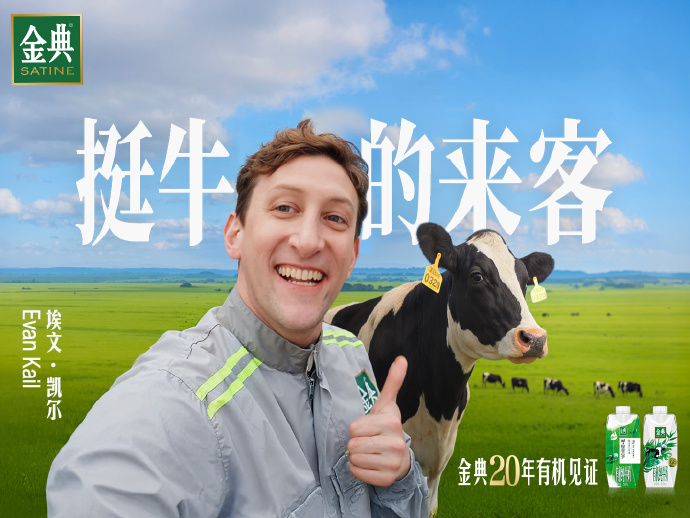To celebrate its 20th year in China, Yili’s Satine Milk released a short film titled A Quite Cow Guest. The campaign features American YouTuber Evan Kail—well known in China for donating a rare WWII photo album—visiting Satine’s organic dairy farm. His goal: to figure out why Chinese people say “ting niu,” or “quite cow,” and what makes Satine live up to the phrase.
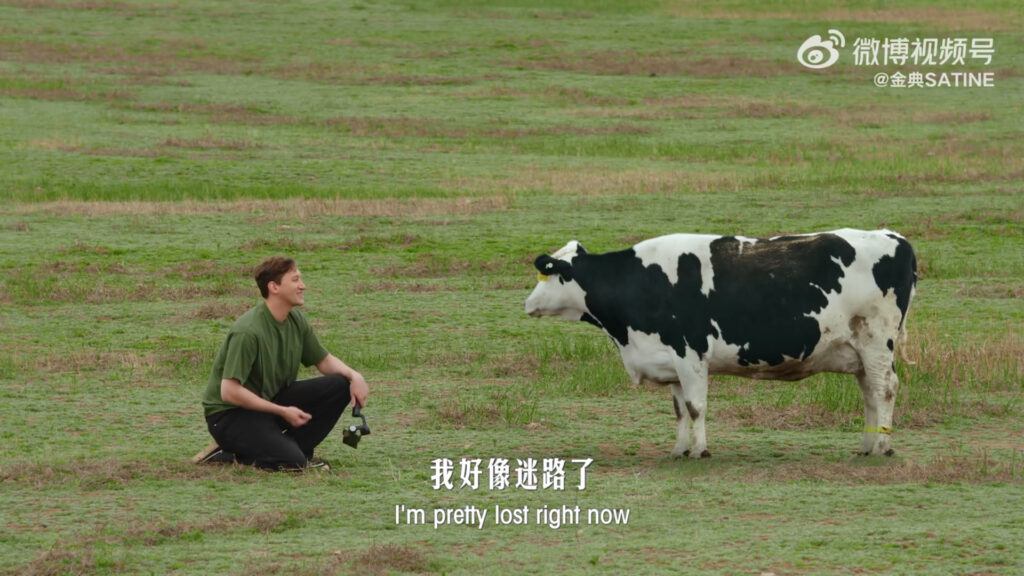
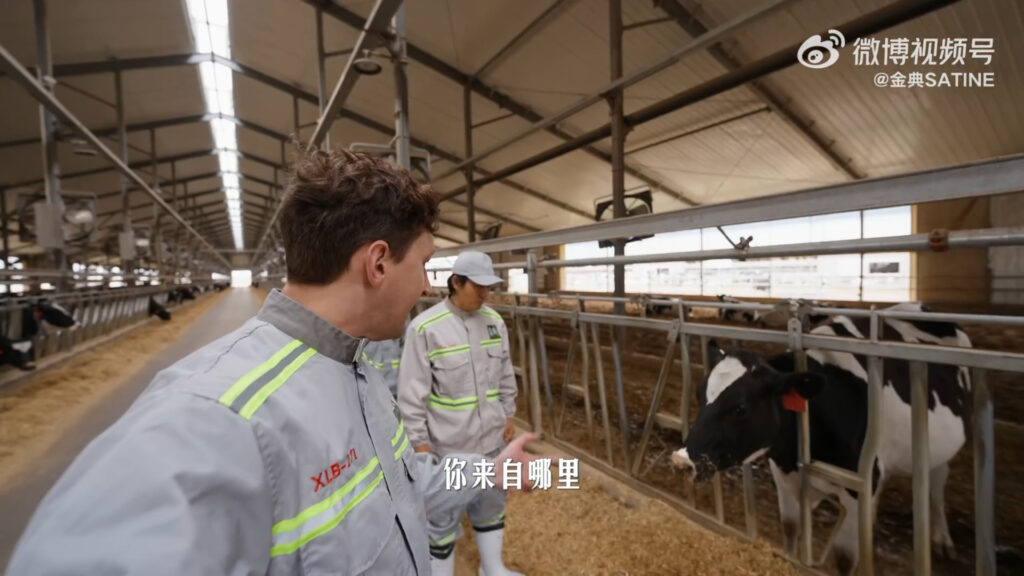
In Chinese, expressions like “ting niu,” “niu ren” (cow person), or “ni tai niu le” (you’re so cow) all mean the same thing: you’re seriously impressive. But how did “cow” become a compliment? Here’s the story behind it:
Cows were once key to getting around: As early as 3,000–4,000 years ago, Chinese communities had already domesticated yellow cattle. By the Han dynasty, cows had become important transport animals and symbols of family wealth and stability.
Cows fueled China’s farming roots: In a country built on agriculture, cattle made all the difference. The spread of iron tools and ox-drawn plows marked major progress. Over time, cows and humans formed a close bond—yellow cattle worked dry land, water buffalo took to rice fields, and yaks thrived in the highlands. Cows became central to everyday life.
Cows still pull their weight today: Beef remains a staple in modern diets, but cows offer more than just food. Their hides, horns, and even manure are used in everything from leather goods to traditional crafts. Simply put, cows keep giving.
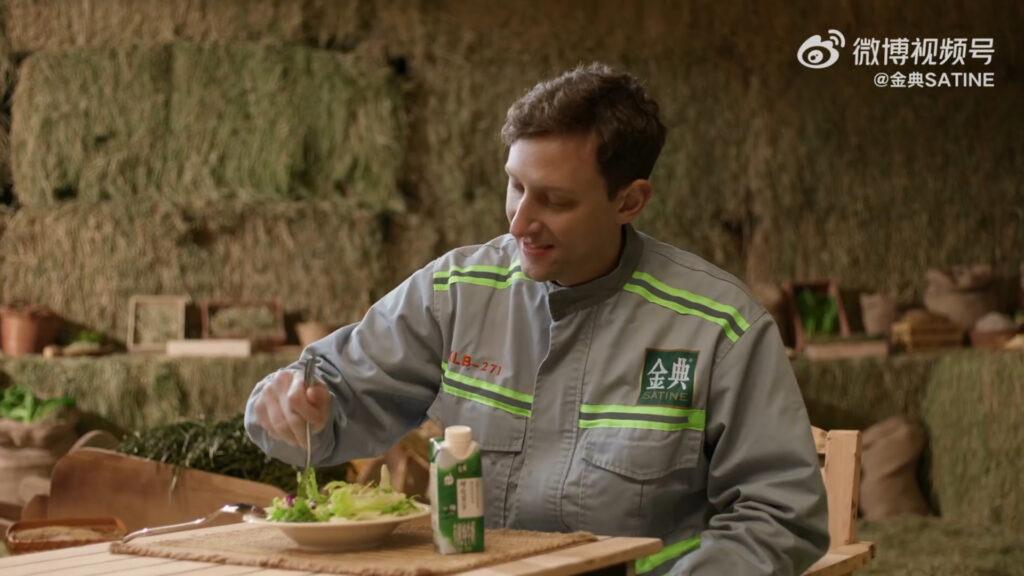
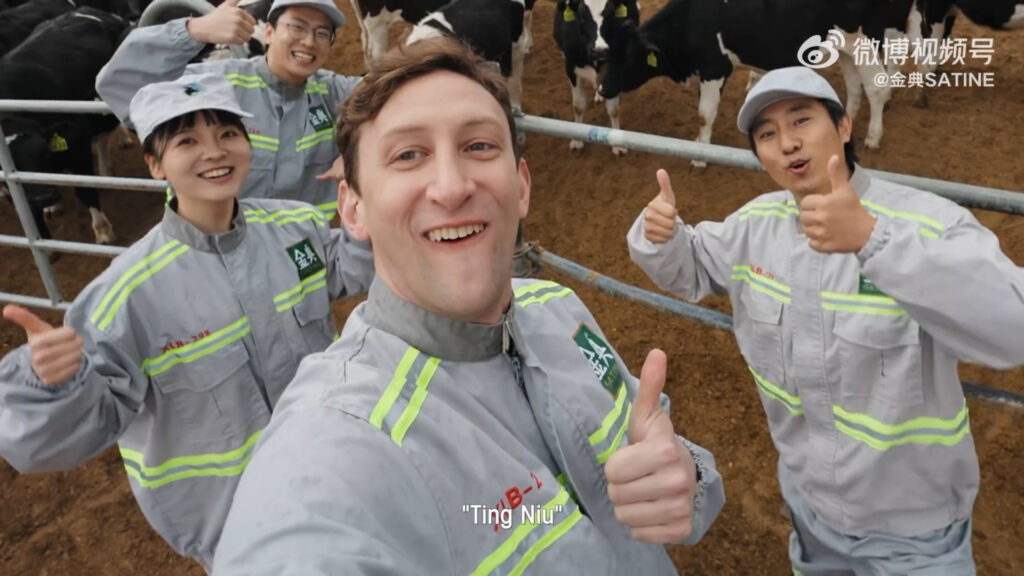
The short film follows Evan as he tries to understand why “ting niu” means more than it sounds. His outsider questions help audiences take a fresh look at both the phrase and the story behind the brand. From pasture blends and cow breeds to smart barns and tech-powered care, the film shows how every part of Satine’s farm is built with purpose.
With humor and curiosity, A Quite Cow Guest turns a phrase people often say without thinking into a deeper reflection of quality and dedication. It gives new meaning to being “quite cow”—top-tier milk backed by hard work, care, and a long-term vision.




